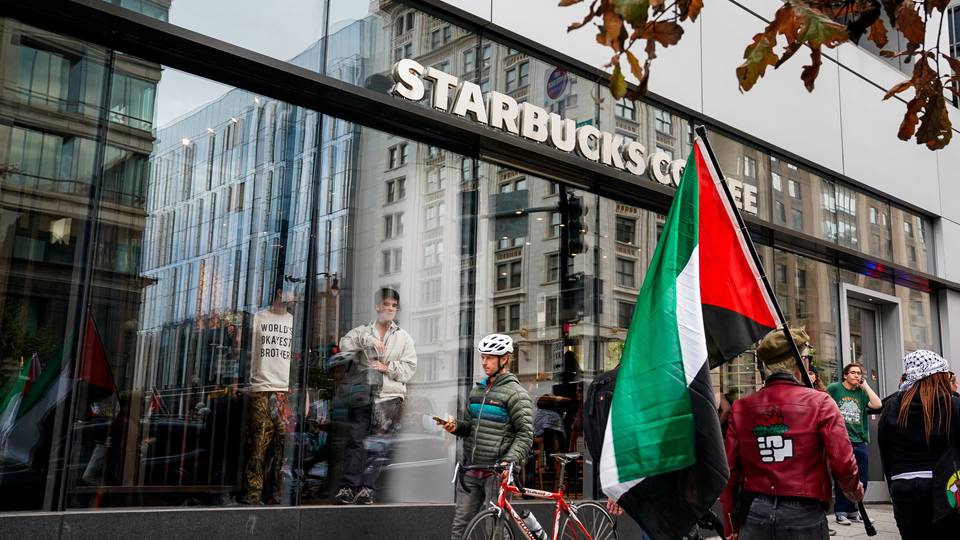The coffee chain had sued a workers’ union for using their logo in posts supporting Palestine, accusing the union of damaging its reputation while failing to take a clear stance in support of Palestinians in the Gaza Strip since the beginning of the war.
Starbucks has appointed Brian Niccol as its new CEO and chairman after Laxman Narasimhan stepped down amid a sharp drop in sales in light of a global boycott movement triggered by Israel’s ongoing war in the Gaza Strip.
The coffee chain announced the new appointment in a statement on Tuesday without providing further details on Narasimhan’s decision to step down.
“Brian Niccol will join Starbucks on September 9, 2024. Mellody Hobson will be lead independent director.”Laxman Narasimhan is stepping down as CEO and as a director effective immediately. Rachel Ruggeri will serve as interim ceo,” it explained.
Niccol has served as the chairman and CEO of famous restaurant chain Chipotle since 2018 and sits on the board of directors of Walmart.
“Revenue has nearly doubled, profits have increased nearly sevenfold, and the stock price has increased by nearly 800% during his leadership, all while increasing wages for retail team members, expanding benefits, and strengthening the culture,” Starbucks said, referring to Niccol’s success at Chipotle.
Starbucks has nearly 40,000 branches and employs around 400,000 people globally.
According to Financial Times (FT), the announcement of Niccol’s appointment added $21bn to Starbucks’ market capitalisation, bumping it up to $108.7bn.
The global outrage towards Starbucks emerged in the wake of Israel’s, widely known as genocidal, war in the Gaza Strip on October 7, 2023, where it has since killed nearly 40,000 people.
The coffee chain had sued Workers United, a workers’ union, for using their logo in posts supporting Palestine. Starbucks had accused the union of damaging its reputation while failing to take a clear stance in support of Palestinians in the Gaza Strip since the beginning of the war.
Last December, Starbucks then-CEO condemned the vandalism of stores and escalating protests in the U.S. and abroad in an open letter to employees.
“While I am grateful for so much, I am concerned about the state of the world we live in. There are conflicts in many parts. It has unleashed violence against the innocent, hate and weaponized speech and lies — all of which we condemn,” Narasimhan wrote at the time.
Then, in January, Starbucks announced a downturn in its annual sales forecast amid the increasing boycotts in the U.S. and the Middle East. Starbucks had informed investors of a “significant impact on traffic and sales” in the Middle East that extended to the U.S.
While Starbucks reported record revenue in the first quarter of 2024, it lowered its sales outlook for the rest of the year. The company said it expected its revenue to increase between seven-to-10 percent, a drop from 10-to-12 percent.
Meanwhile, in March, Starbucks’ Middle East operator, AlShaya Group, reportedly announced plans of slashing more than 2,000 jobs after taking a hit from massive regional boycott movements.
Reuters reported at the time that the cuts represented about 4 percent of the Gulf franchise’s workforce of almost 50,000.
“As a result of the continually challenging trading conditions over the last six months, we have taken the sad and very difficult decision to reduce the number of colleagues in our Starbucks MENA stores,” AlShaya said in a statement cited by Reuters.
Last month, the coffeehouse chain recorded a decrease for the second consecutive quarter.







